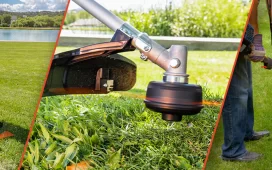One of the things that people should know is that “hard water” is a general term that is used to mention a water supply that has absorbed or taken in high amounts of minerals from the earth, like calcium, magnesium, and others. Water is also known to be soft if there are no such minerals present in it in substantial quantities. Another thing you ought to know is that water is naturally soft, like the water of streams or lakes. Besides all of that, water can also be naturally soft if any kind of artificial treatment is done, either by the municipal water utility company or through an in-house water treatment tool, also known as water softener. Water softener can be described as a kind of filtering appliance or tool that removes minerals from the water like magnesium and calcium.
Problems with Hard Water:
Because of the nature of the rock through which rainwater filters down through the surface, underground water supplies become quite hard. Some of the regions that have a high amount of limestone, gypsum, and chalk are mostly the ones that have hard water in the reservoirs of the groundwater, whereas the regions in which there is a predominant rock, whether granite or some other lesser calcium stone, have soft water naturally. Water can become hard in some agricultural areas where lime is applied in large quantities. Another issue that can be treated well is the sulphur content issue. One of the main signs of too much sulphur in the water is the bad smell in the water and the water’s red or brown colour. It can also lead to bacteria and corrosion in the drinking water.
Consequences of the Use of Hard Water
Hard water, or too much hard water, causes a variety of problems. Drinking hard water dissolved with minerals such as high amounts of magnesium or calcium poses no health risk. In fact, minerals like the one mentioned above are important for health even in small amounts. But if these minerals are at high levels, then they can get built up in the plumbing, pipes, fixtures, and other appliances, mainly interfering with the function of the same. For instance, the build-up of minerals in faucets and other water heaters can shorten the lifespan. There are some people who may feel like itching after taking a bath in water that has a high mineral content. Besides all of that, if the water is hard, you may not be able to lather your soap because the minerals in the water can get mixed with the soap and form a sticky scum that will cling. If there are water spots in the cleaning or dishwashing area, it shows that you have hard water. The sticky scum can be tedious to remove from clothes and hair.
Different Kinds of Water Softener
There are different types of water softeners that are available. The first one is the ion exchange. It is one of the most common types of water softeners that can be used in homes. It works by removing magnesium and calcium ions and then replacing them with sodium ions, which don’t have any kind of damaging effects. It is one of the best-known devices that comprises salt pellets in large tanks. Next is salt-free, and this device uses mechanical filtration to remove the calcium. But it doesn’t work that well on very hard water. It cannot remove magnesium. The next device is known as reverse osmosis. This is one such device that can filter the water through a semi-permeable membrane. It removes 98% of water impurities. It is a costly appliance. Plus, it uses a large amount of water. However, it is an excellent device for removing water impurities such as calcium and magnesium. The use of this device can have a negative effect on the human body, as the human body requires minerals. Long-term use of reverse osmosis can deplete the human body of pivotal minerals.











